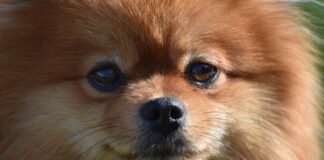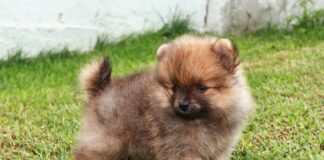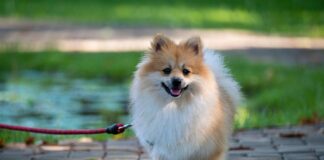Degus, small rodents native to Chile, are gaining popularity as exotic pets due to their social, intelligent, and active nature. These adorable creatures, with their soft fur and large, dark eyes, are often compared to guinea pigs, but they possess unique characteristics that make them a fascinating choice for pet owners. If you’re considering adding a degu to your family, it’s important to understand their specific care needs and requirements to ensure they thrive in your home. In this article, we will delve into the peculiarities of keeping and caring for degus, from their dietary needs to their social behavior and habitat requirements.

1. Introduction to Degus
The degu (Octodon degus) is a small rodent from the dry regions of Chile. They are social animals, often found in the wild in groups, and they have a high level of intelligence, making them one of the most interactive and trainable rodents. Unlike some other small pets, degus can live up to 8-10 years with proper care, which is relatively long for a rodent. Due to their curious nature and need for mental stimulation, degus are best suited for owners who are willing to invest time in their care and socialization.
2. Degu Habitat: Setting Up the Perfect Home
When setting up a home for your degu, it’s crucial to create an environment that mimics their natural habitat as much as possible. This will ensure they remain healthy and comfortable.
2.1. Cage Requirements
Degus are highly active creatures and require ample space to explore and play. A small cage will not suffice for these curious rodents, so it’s essential to provide them with a large, multi-level cage. A minimum cage size of 24 inches long, 18 inches wide, and 24 inches high is recommended for one or two degus. For each additional degu, you should add extra space.
- Bar Spacing: The cage should have bars spaced no wider than 1/2 inch apart to prevent escape, as degus are quite adept at squeezing through small spaces.
- Materials: Avoid cages with plastic floors or walls, as degus love to chew and may damage these materials. Wire or metal cages with a solid floor are preferable.
- Multi-Level Design: Degus love climbing, so a cage with multiple levels, ramps, and platforms is ideal. Providing these opportunities will allow them to expend energy and avoid boredom.
2.2. Bedding and Substrate
Degus need bedding to burrow in and to help absorb waste. Opt for paper-based bedding, such as recycled paper or aspen shavings, which is soft, absorbent, and safe for them. Avoid cedar or pine wood shavings, as they can cause respiratory issues due to the aromatic oils they contain.
- Deep Bedding Layer: A deep bedding layer of at least 2-3 inches is recommended so that your degus can burrow and dig, which is a natural behavior for them.
- Regular Cleaning: Clean the cage at least once a week to maintain hygiene and prevent any buildup of bacteria or odor.
2.3. Nesting and Hiding Places
Degus are prey animals, so providing hiding spaces where they can retreat to feel safe is important. You can use wooden boxes, ceramic hides, or tunnels made from cardboard. These shelters will give them a sense of security and a space to sleep and relax.
3. Degu Diet: What to Feed Them
A balanced diet is crucial to maintaining a healthy and happy degu. Degus are herbivores and have specific dietary needs that must be met to avoid health issues like obesity and diabetes.
3.1. Hay: The Staple of the Degu Diet
Hay should make up the majority of your degu’s diet, providing essential fiber for their digestion and teeth health. Offer them a high-quality grass hay, such as timothy hay, meadow hay, or oat hay. Make sure the hay is fresh and free from mold or contaminants.
- Unlimited Hay: Always provide unlimited amounts of hay in their cage, as degus need constant access to fiber.
- Variety: Providing different types of hay will keep them engaged and encourage them to eat a varied diet.
3.2. Pellets and Fresh Vegetables
In addition to hay, you can offer your degu commercial pellets formulated specifically for degus. These pellets contain important nutrients and are a convenient way to ensure they get a balanced diet. Be sure to avoid sugary or fatty treats, which can lead to obesity and diabetes.
- Fresh Vegetables: Degus enjoy fresh vegetables like kale, parsley, dandelion leaves, and small pieces of carrots. Introduce vegetables gradually to prevent digestive upset, and avoid feeding them high-sugar vegetables like bell peppers and tomatoes, which can harm their health.
- Fresh Water: Provide fresh water daily, and change it regularly to ensure it’s clean and free from contaminants.
3.3. Foods to Avoid
There are several foods you should avoid feeding to your degu, including:
- Sugary foods: Fruits and sugary snacks should be fed sparingly to prevent obesity and dental issues.
- Caffeine and chocolate: These can be toxic to degus and should never be offered.
- Nuts and seeds: While these can be a good treat in moderation, they are high in fat and should not be part of their regular diet.
4. Socializing and Mental Stimulation
Degus are highly social animals, and they thrive in groups. If you are planning on keeping a degu as a pet, it is highly recommended to get at least two, as they can become lonely and stressed if kept alone. Proper socialization is key to ensuring that your degus remain happy and well-adjusted.
4.1. Social Behavior
In the wild, degus live in groups, and they are very interactive with their companions. If you keep multiple degus, they will likely groom each other, play together, and communicate through chirps and squeaks. It’s important to ensure that your degus are compatible with each other, as sometimes males may fight, especially if they are not neutered.
- Introducing Degus: When introducing new degus to your existing ones, do so gradually and in a neutral space to avoid territorial behavior.
- Handling: Degus are social and curious, so spending time with them and offering them your hand to climb on will help build trust. Gently pick them up and handle them, but avoid grabbing them, as this may cause stress or fear.
4.2. Mental Stimulation
Because degus are intelligent animals, they need plenty of mental stimulation to avoid boredom, which can lead to destructive behavior or depression.
- Toys: Provide your degu with safe toys to chew on, such as wooden chews, cardboard tubes, or climbing structures. Chewing helps maintain their teeth, which grow continuously.
- Interactive Play: Allow your degus to roam in a safe, enclosed area outside of their cage where they can explore and interact with you.
- Training: Degus can be trained to perform simple tricks, like learning to climb ladders or follow commands. This mental engagement is a great way to bond with your pet while keeping their mind sharp.
5. Degu Health and Grooming
Maintaining your degu’s health is essential for its long life and well-being. Regular grooming and monitoring for common health issues are vital aspects of care.
5.1. Teeth Health
Degus’ teeth grow continuously, so they need to chew on things to help keep their teeth from becoming overgrown. Provide plenty of chew toys and sticks to encourage this natural behavior. If their teeth become too long, it can lead to difficulty eating and other health problems.
5.2. Fur and Skin Care
Degus have soft, thick fur that requires minimal grooming, but they still benefit from occasional brushing. Use a small animal brush or a soft toothbrush to remove any loose fur or debris. Make sure to check for signs of mites or other skin conditions.
5.3. Regular Veterinary Checkups
Like all pets, degus should have regular veterinary checkups to monitor their overall health. Watch for signs of illness, such as changes in eating habits, lethargy, or diarrhea, and seek veterinary advice promptly if you notice anything unusual.
6. Conclusion
Keeping and caring for a degu requires time, effort, and dedication, but the rewards of having a happy, healthy, and well-socialized pet are immense. By providing a spacious, enriched environment, a balanced diet, and plenty of opportunities for social interaction, you will ensure that your degu has a long, fulfilling life. Remember that degus are social, curious, and intelligent creatures that thrive in an engaging and stimulating environment, so be prepared to invest the time and energy necessary to keep them happy. Whether you’re a first-time pet owner or an experienced animal lover, degus can make wonderful companions that will enrich your life.




























